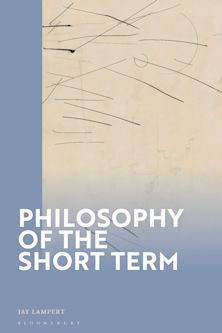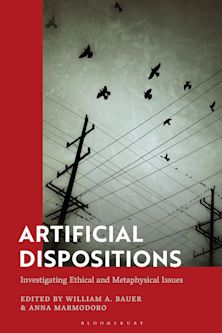Philosophy and Geography II
The Production of Public Space
Philosophy and Geography II
The Production of Public Space
This product is usually dispatched within 2-4 weeks
- Delivery and returns info
-
Flat rate of $10.00 for shipping anywhere in Australia
Description
The future of public space is uncertain. Although public spaces have become increasingly shabby and crowded, novel alternatives have appeared in the form of fantastic, semi-public pleasure grounds, developed by well-heeled, crowd-pleasing entrepreneurs and devoted to profit, consumption, and self-indulgence. Philosophers and geographers have converged on the topic of public space, fascinated and in many ways alarmed by fundamental changes in the way post-industrial societies produce space for public use, and in the way citizens of these same societies perceive and constitute themselves as a public. The contributors to this volume advance this inquiry, making extensive use of political and social theory. Philosophy and Geography II: The Production of Public Space gives readers an enhanced appreciation of the intimate connections between political principles, social processes, and the commonplaces of our everyday environments.
Table of Contents
Chapter 2 Acknowledgements
Chapter 3 Introduction: Geography, Philosophy, and Public Philosophy, and Public Space
Part 4 Symposium on Henri LeFebvre's the Production of Space
Chapter 5 Henri Lefebvre on Abstract Space
Chapter 6 Antinomies of Space and Nature in Henri Lefebvre's The Production of Space
Chapter 7 The Production of Space or The Heterogeneity of Place: A Commentary on Edward Dimendberg and Neil Smith
Part 8 Beyond The Public/Private Dichotomy
Chapter 9 Formal Politics, Meta-Space, and the Construction of Civil Life
Chapter 10 The Stranger on the Green
Chapter 11 Public and Private, Power and Space
Chapter 12 The "Disappearance of Public Space": An Ecological Marxist and Lefebvrian Approach
Part 13 Regional Territories
Chapter 14 Contested Space: The Rural Idyll and Competing Notions of the Good Society in the U.K.
Chapter 15 The Rights of Rights of Way
Chapter 16 The Mediation of the Public Sphere: Ideological Origins, Practical Possibilities
Chapter 17 Representation, Identity, and the Communicative Shaping of Place
Chapter 18 Maps and Entitlement to Territory
Chapter 19 Index
Product details
| Published | 18 Dec 1997 |
|---|---|
| Format | Paperback |
| Edition | 1st |
| Extent | 268 |
| ISBN | 9780847688104 |
| Imprint | Rowman & Littlefield |
| Dimensions | 228 x 156 mm |
| Series | Philosophy and Geography |
| Publisher | Bloomsbury Publishing |



































